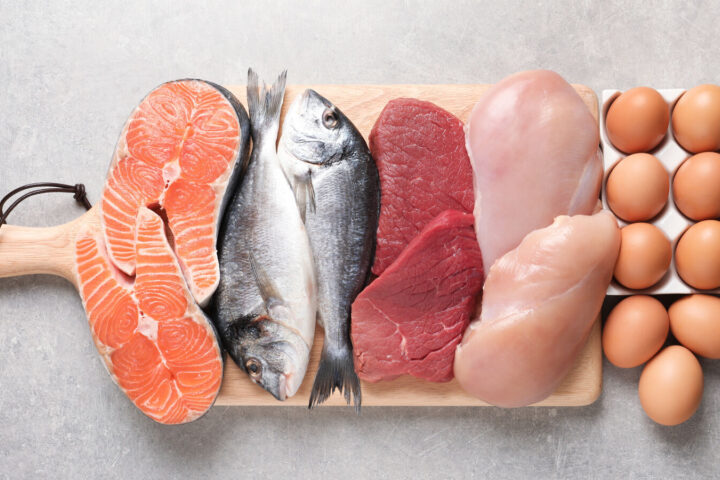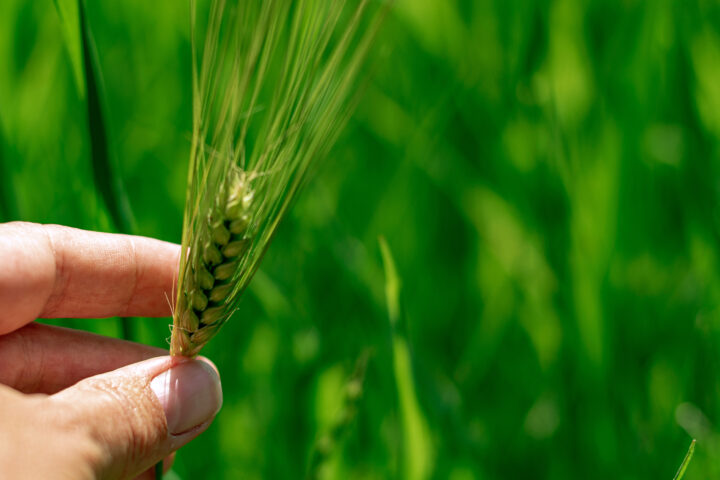
Environmental organizations put children's lives at risk
In the Philippines, the cultivation of Golden Rice has been temporarily banned. NGOs have obtained a cultivation ban based on scientifically untenable arguments. The poorest people, who could be protected from nutritional deficiencies by this rice, are the ones suffering the most. Martin Qaim, a professor of agricultural economics at the University of Bonn, strongly criticizes this renewed blockade and explains the background in the "Frankfurter Allgemeine Zeitung."
Thursday, June 29, 2023
In November 2022, Filipino farmers harvested Golden Rice for the first time. It was good news because it took as long as 30 years from the idea to the first harvest. As reported by the "Frankfurter Allgemeine Zeitung," the cultivation of Golden Rice in the Philippines has been stopped again. Greenpeace and the local NGO MASIPAG successfully protested against the cultivation of Golden Rice in the country's Supreme Court. It is no longer allowed to cultivate Golden Rice. Martin Qaim, the professor of agricultural economics and director of the Center for Development Research at the University of Bonn, provides an analysis of this decision in the "Frankfurter Allgemeine Zeitung."
Exploitation of unfounded fears
As Qaim explains, the NGOs successfully exploited old fears. In their petition to the Supreme Court, they argued that the cultivation of Golden Rice should be stopped because genetically modified plants allegedly harm nature and human health. The court's decision is surprising and incomprehensible: "...Golden Rice was assessed as safe after many years of testing its environmental and health effects in the Philippines in 2021. Since then, no new information about environmental and health risks has been found," Qaim states in the "Frankfurter Allgemeine Zeitung." According to the agricultural economist, the NGOs refer to hypothetical risks that are not supported by scientific evidence.
Thousands of children's lives could be saved
Due to the successful petition by Greenpeace and MASIPAG, the approval of Golden Rice is once again delayed. This is regrettable because the rice enriched with provitamin A could prevent blindness in many people, especially children, and reduce high child mortality rates. Qaim says in the "Frankfurter Allgemeine Zeitung," "Research conducted by my research group shows that the use of Golden Rice would probably not completely solve the problem of vitamin A deficiency but could reduce it by 60%. This means, among other things, that thousands of children's lives could be saved each year through Golden Rice. That's why it's so unfortunate that its use is further delayed."
Setback for modern plant breeding
The decision in the Philippines represents a setback for Qaim: "The decision in the Philippines is a setback because it likely reinforces the prejudice that the technology is dangerous." However, new breeding methods such as genome editing represent a tremendous opportunity for food security and more sustainable agriculture. "Especially in light of climate change, we would be ill-advised not to responsibly harness these potentials," says Qaim. And he remains optimistic that scientific evidence will ultimately prevail over deliberately stoked fears.
Sources
Frankfurter Allgemeine Zeitung, May 7, 2023
Kindly note:
We, a non-native editorial team value clear and faultless communication. At times we have to prioritize speed over perfection, utilizing tools, that are still learning.
We are deepL sorry for any observed stylistic or spelling errors.
Nobel laureates criticize NGOs
In 2016, more than 100 Nobel laureates signed an open letter calling for the use of modern breeding technologies in agriculture. According to the United Nations, the demand for food will double by 2050. The new breeding technologies are necessary to meet this demand. The scientists also strongly criticize NGOs like Greenpeace, who prevent the cultivation of Golden Rice and fundamentally oppose new breeding techniques.
Opponents of new breeding methods are increasingly finding themselves in a difficult position. They ignore science and simply repeat old unfounded criticisms. The German environmental organization "Aurelia" openly admitted this in an internal strategy paper, as reported by the "Welt am Sonntag": "With predominantly scientific arguments, we can only lose because we have nothing to counter the 'Follow the Science-Leopoldina authority framing'... That's why environmentalists conclude that a new narrative is needed for the application of genetic technology in plant breeding. This new narrative should be based not on facts but on emotions such as freedom of choice, love for nature (bees), and the power of seed companies."
Related articles

Why Strict GMO Regulation Stifles Innovation
New breeding techniques such as CRISPR-Cas are considered key to developing resilient crops, stable yields and reducing the need for plant protection products. ETH professor Bruno Studer warns that overregulating these technologies strengthens precisely those large agricultural corporations that critics seek to curb, while excluding smaller breeders and start-ups from the market.

A Superfood with Benefits and Challenges
Sweet lupin is Biovision’s “Superfood of the Year 2026.” It delivers high protein content, improves soils and supports biodiversity. Yet a closer look at agricultural practice shows that without breeding, crop protection and innovation, even this superfood remains a challenging crop.

Sales bans due to PFAS: Should we be worried?
After spectacular sales bans on fish and meat due to PFAS contamination, consumers are asking themselves: How dangerous are these substances really – and what can still be placed in the shopping basket without concern?

How German Experts View New Breeding Techniques
In hardly any other country is the idyllic image of organic farming cultivated in the public sphere as carefully as in Germany. Naturalness and rural authenticity are powerful mental refuges for many Germans. Against this backdrop, it is hardly surprising that resistance to new breeding techniques is strong – and that ignorance about the realities of organic farming sometimes appears almost deliberate.

